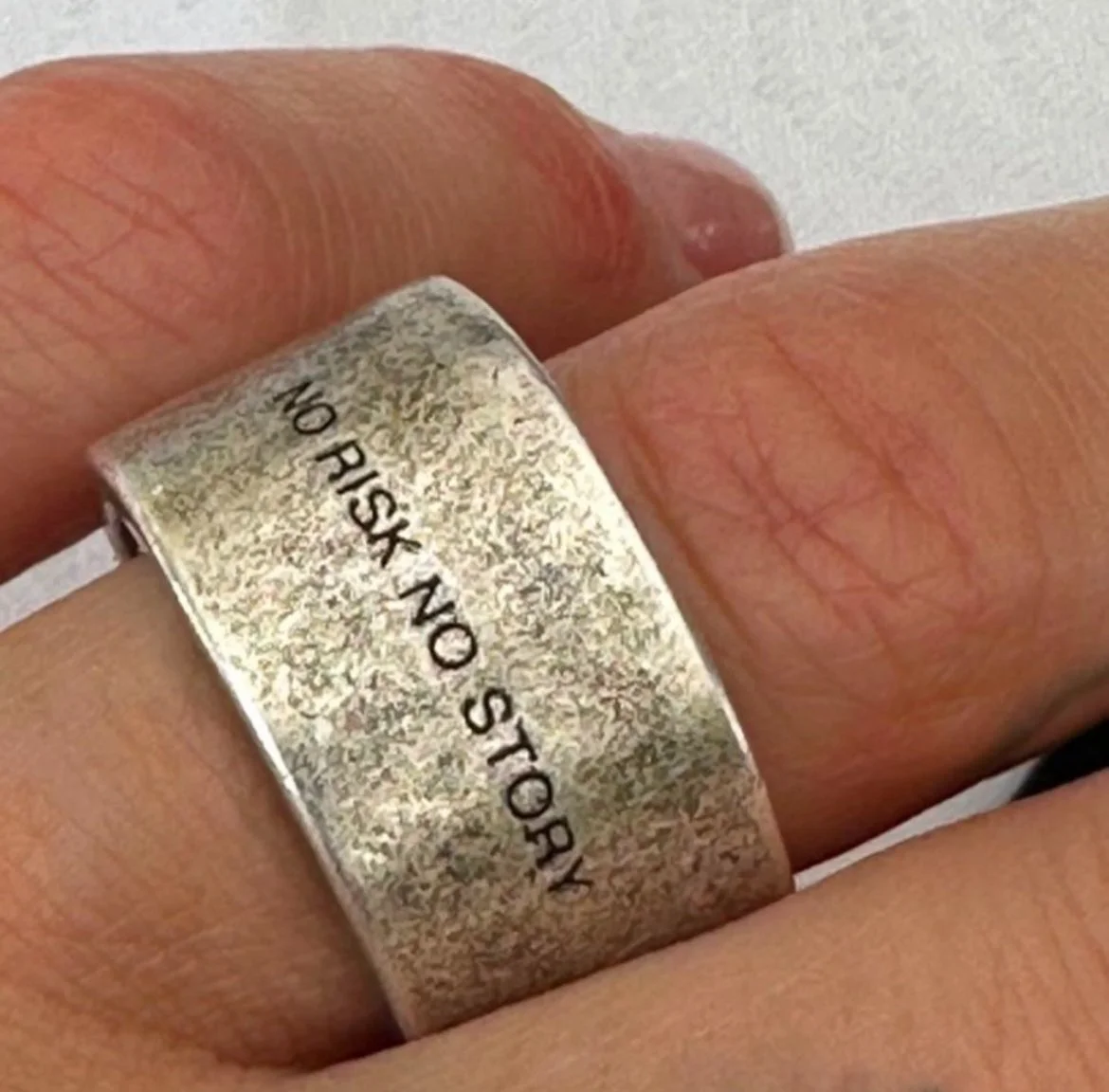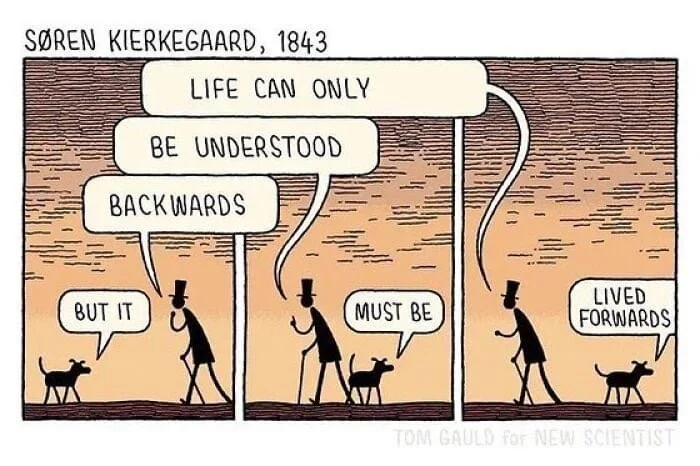Dating, Risk, and ROI: Why Love Is the Ultimate High-Stakes Game
Love Involves Risk
Dating is hard.
One week, you’re euphoric, thinking, This might actually go somewhere. The next, you’re left on read, ghosted, or realizing they were never that into you in the first place. Maybe you get blindsided by an unexpected breakup, or worse—stuck in a situationship that drags on for months.
And yet, we keep trying.
Because the jackpot is worth it: the love of your life.
The Risk Factor
Through my experience as a budding entrepreneur—and my work with more seasoned ones—I’ve realized that many people don’t fully understand one fundamental concept: risk.
The sexologists working under my umbrella didn’t grasp the pressure of financial risks (cash flow shortages, unexpected legal fees), market risk (low demand during low-season, shifting trends or consumer behavior, economic downturns affecting spending), operational risk (hiring the wrong team, inefficient processes), legal & compliance risks (don’t get me started on the absurdity of the board of sexologists in Quebec) or reputational risk. They didn’t realize that hiring them was a risk on my part, or even the basic level of risk involved in signing a commercial lease under my name.
Maybe it’s cultural, but in Quebec, people tend to be risk-averse—many aren’t even exposed to real risk in their careers or lives in general.
But there is one area where people universally understand risk: love.
Love and dating inherently involve risk because they require emotional vulnerability, uncertainty, and the possibility of loss or disappointment.
In investing, in entrepreneurship, and in love, the bigger the risk, the greater the potential return.
The Fear of Letting Go
Today, a client told me he was terrified to leave his subpar relationship. He’s not miserable (or so he says)—his girlfriend isn’t abusive, jealous, or what he’d call "psycho." But he’s not fulfilled either. At best, she feels like a great roommate.
He knows something is missing, but he’s unwilling to take the leap. And I don’t blame him. Risk-taking is brutal—it keeps us up at night.
"What if I regret breaking up with her?"
Fair question. But I asked him:
"What if you regret staying with her?"
"True, I haven’t really thought about that option."
"Are you more focused on the risk of leaving than the risk of staying?"
"Yeah, I think more about the risk of leaving. I wonder… what if I never meet anyone better?"
"That’s a possibility—but that’s a risk only you can decide if you’re willing to take."
During our session, we did the Schwartz Universal Values exercise, and his top value? Security. No wonder leaving feels impossible.
But here’s the thing: instead of comparing his relationship to another relationship, he should compare it to being single.
Would he be happier alone?
Most people don’t even consider that option, because they’re not in a healthy relationship with themselves. They haven’t learned to invest in their inner world—so being alone doesn’t feel natural, it feels unbearable. Being alone is more terrifying than being unhappy with a partner, so their brains shut that door before they can look inside.
Most of my clients—and myself, just two years ago before I began writing my book—have never built a home within themselves. Without that inner sanctuary, solitude and true singleness don’t feel like peace; they feel like existential agony.
Knowing that most people cannot handle true solitude (the healthy kind of solitude), this further complicates their decision to leave a subpar relationship because their relationship to risk (the risk of ‘not finding better’) is skewed.
But love—real love—demands risk. The only question is, how much are you willing to take?
What Kind of Love Are You Aiming For?
I’m biased when it comes to emotional risk—I have my own tolerance, and it might be different from yours. Yours could be higher or lower, and that’s okay.
But here’s a question that might help you navigate a tough decision: What kind of love am I aiming for?
Am I chasing a Formula 1 love? Or am I content with a go-kart love?
Ambitions come in all sizes.
Romantic ambition is no different.
Some people are satisfied just being with someone who isn’t abusive, controlling, or jealous. And while that’s understandable, it’s also a pretty low bar (you can find one framework here and another one here on how to assess the strength of a relationship).
Funny enough, some of my clients take massive risks in business but play it painfully safe in their love lives.
If you know you have a low tolerance for emotional risk, a go-kart love might genuinely make you happy. But it’s important to be honest with yourself. If you’re expecting a high return without being willing to take risks, your expectations are mismatched—and that might leave you deeply unhappy.
The kind of Risk that deserves respect
Eric is a client whose decision to end a twelve-year relationship and embrace the unknown is something I deeply admire. On paper, he’s not someone you’d expect to make impulsive decisions—he works in the financial world, in a sub-field known for volatility, yet he’s the complete opposite of volatile.
In a culture where job-hopping is common and higher pay is seen as a no-brainer upgrade, Eric stands out. Despite being regularly approached with offers boasting impressive salaries, he has remained with the same institution for ten years. He’s grounded enough not to chase more money for the sake of it, and he’s wise enough to see the hidden risks in shiny new roles at startups. He doesn’t fall for what I call “shiny object syndrome.”
After doing about 1,000 sessions per year with clients, after working in the army where I met just about every kind of men possible, and traveling solo to over 30 countries, I’ve developed a kind of inner algorithm—an intuition—that helps me quickly read people. It’s not perfect, of course, but early on, I recognized Eric as one of the “train people.”
What do I mean by that? Some people are trains, others are golf carts. Trains are slow to start, but once they’re moving, they’re steady, consistent, and hard to stop. They don’t change direction easily. Golf carts, on the other hand, are quick to start, quick to shift course, and quick to stop.
“Train people” tend to have certain things in common: they’re loyal to their friends (often maintaining relationships since high school), loyal to their employer, and loyal to their partners—sometimes to a fault. They’re not impulsive; they take their time before making decisions, weighing every possible angle. They’re also loyal to their habits, their routines, even the brands of clothing they wear. They value stability, consistency, and temperance.
Eric came to see me after finally ending the relationship he’d known for years wasn’t right. He wanted to understand what held him back, and why it took him so long to leave. And the more I got to know him, the more I respected his choice—not because he left, but because of how much that choice must have cost him, given his relationship to risk.
Because here’s the truth: there’s no guarantee he’ll find better. We both know this. Rationally, we can’t defend the idea that love always improves the second time around. Spiritually, I could argue it. But logically? No.
And still—he left. Not for someone else. Not for adventure. But because he honored what he knew, deep down, to be true. That kind of risk—the quiet, lonely, no-promise kind—is the kind that deserves the highest respect.
The Risks in Dating
Risk is present throughout the entire dating phase, from the first interaction to truly getting to know someone.
Early on, dating comes with several risks—both emotional and practical:
Rejection – You put yourself out there only to be ghosted or turned down.
Emotional vulnerability – Opening up too soon and facing disappointment.
Wasted time – Investing energy in someone who ultimately isn’t the right fit.
Getting too attached too soon – Falling before you even know if they’re truly right for you.
Fear of judgment – Wondering if you’re "good enough" or how you’re being perceived.
Oversharing or holding back – Struggling to find the right balance between honesty and protecting yourself.
And that’s only to name a few risks…Again, the same question applies: What kind of love are you aiming for?
The bigger, grander the love you seek, the bigger the risks you might have to take.
Yet, despite the risks, love remains one of the most sought-after human experiences. Many people accept these uncertainties because the potential for connection, intimacy, and fulfillment outweighs the possibility of pain.
The key is understanding that risk is not something to avoid, but something to navigate wisely.
So, the real questions are: Are you willing to risk temporary discomfort for the chance at something extraordinary, or will you settle for what's safe but unfulfilling? Are you proud of the level of emotional courage you bring to your love life, or are you letting fear make your choices for you?
“Grand, life-changing love isn’t just something from movies and novels—it’s real. I know because I see it every day in my office.”
Psss! Not sure what your grand, soul-stirring relationship could feel like? These two articles might just spark your imagination. First one here, and second one here.

